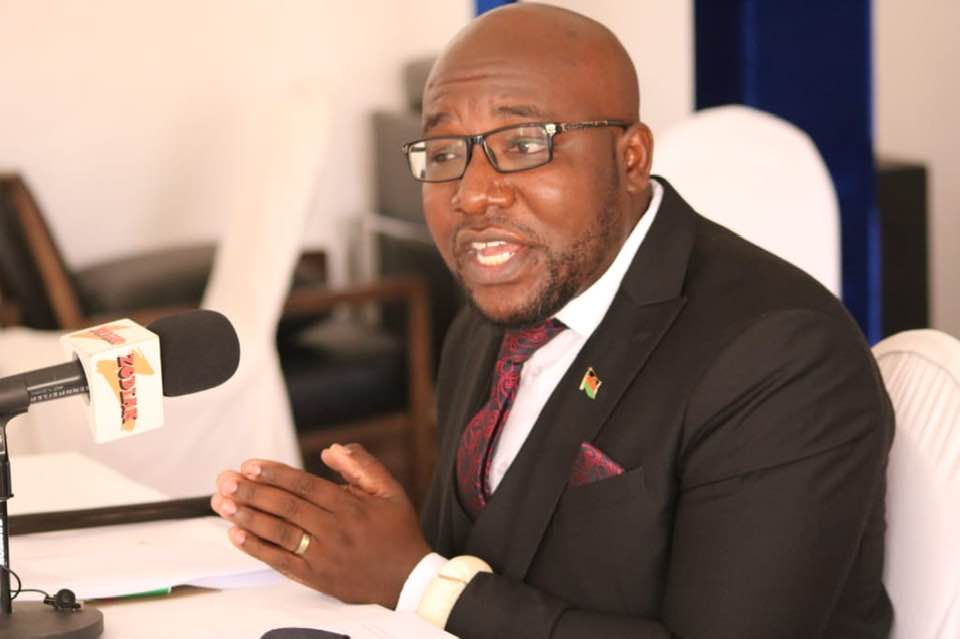Devaluation: Hit or miss?
Different viewpoints have emerged on whether the 44 percent devaluation of the kwacha will solve the country’s economic problems with the Reserve Bank of Malawi (RBM) keeping its figures crossed and economists bemoaning lack of cushioning measures.
The central bank on Thursday said the “currency alignment” has happened amid positive prospects of the country unlocking about $174 million from the International Monetary Fund (IMF) under a three-year Extended Credit Facility (ECF) programme expected to boost the supply of foreign exchange on the market.

But Economics Association of Malawi (Ecama) observed that it was unfortunate that the devaluation was implemented before the constraints in the economy were fully addressed.
In an interview on Thursday, RBM spokesperson Mark Lungu said the expectation is that the latest devaluation will achieve the desired outcome of unlocking foreign exchange inflows.
He said: “Economic management is a continuous process and involves monitoring and evaluating the impact of decisions that have been implemented.
“In this case, the authorities will continue to monitor the economy and the expectation is that adjustment will achieve what is desired.”
On how this time the “currency alignment” will unlock foreign exchange when a similar measure implemented in May 2022 failed to achieve the desired goals, Lungu said the prospects of getting an IMF programme this time are high.
“That is the difference between the two adjustments. You need such an adjustment to be supported by an inflow of resources,” he said.
Ecama immediate-past president Lauryn Nyasulu said if the rate at which the kwacha has been devalued will lead to a market clearing rate, then the expectation is that the macro-economic environment is supposed to stabilise.
But she said this will not happen on its own, stating: “If you recall, last year the currency was devalued, but the misalignment just moved from one level to another.
“It is because constraints in the economy were not addressed. The production is not at a level that will allow us to generate adequate forex.”
Nyasulu said there is need for more incentives to stimulate private sector production to stabilise the economy in the long-term.
In a statement on Wednesday evening, RBM Governor Wilson Banda said the 44 percent devaluation follows the imbalances as well as the mismatch in the exchange rate in cash and telegraphic transfer.
Following the devaluation, the kwacha is now selling at K1 700 against the dollar in authorised dealer banks from K1 180.
Responding to The Nation question on whether the latest devaluation is a hit or miss, former minister of Finance Joseph Mwanamvekha said devaluation on its own is not a solution to the country’s economic woes.
He said the central bank has not put in place measures to mitigate the impact of the kwacha fall, one of which was to make forex available on the market.
Said Mwanamvekha: “It can only work if you devalue the kwacha and have foreign exchange readily available in the bank.
“But as long as there is no forex in the bank, the demand for forex will remain, so too will the gap between the official and parallel market rates.”
He said there is need, among others, to slow down on importation of non-essential products and promote import substitution as well as tame travel which drain foreign exchange.
In a separate interview, University of Malawi economist Jacob Mazalale on Thursday observed that in the medium to long-term, the economy will stabilise following the devaluation.
Devaluation has always been a sticky issue in Malawi. Between 2010 and 2012, former president Bingu wa Mutharika, an economist, stood firm against it.
He premised his argument on the fact that the move would hurt local consumers while benefitting importers more as Malawi was a predominantly importing and consuming economy with negligible exports.
But Bingu’s successor Joyce Banda bowed down to the pressure and devalued the kwacha by 49 percent on May 7 2012, which brought untold misery on Malawians, with prices of goods and service rising, triggering a record high inflation of 37.9 percent in February 2013.
Cumulatively, over the past 17 months, the kwacha has lost 82.1 percent
The 25 percent devaluation last year was meant to align the foreign exchange supply to the macroeconomic fundamentals, but supply and demand imbalances have remained.





